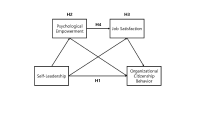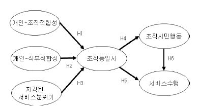PURPOSE This study aims to develop a coach presenteeism scale with scientifically proven reliability and validity. METHODS In order to achieve the research purpose, preliminary questions were drafted using previous studies (Lee & Kim, 2022) and existing presentation questionnaires (SPS-34, SPS-6, SPS-13). The preliminary set of questions was composed of 23 questions, which were deliberated through a meeting with subject experts. After which, a survey involving 183 coaches was conducted. In this study, statistical verification procedures were conducted through construct validation, exploratory factor analysis, confirmatory factor analysis, internal consistency analysis, convergent validation and discriminant validation. RESULTS Finally, a 2-factor (DRA 5 items, DTP 5 items), 10-item coach presenteeism scale was developed. CONCLUSIONS In this study, a scale with verified reliability and validity was developed to support and investigate the presenteeism phenomenon experienced by coaches. These may be used by coaches themselves to check their presenteeism status and may guide future research to effectively train athletes.
PURPOSE This study aimed to provide evidence for improving the working environment by exploring the phenomenon of presenteeism experienced by coaches. METHODS Ten coaches experiencing presenteeism were selected as participants of the study using the snowball sampling method, and in-depth interviews were conducted. The in-depth interviews were conducted for about 50 to 60 min using semi-structured questions organized through pre-expert meetings, and inductive content analysis was conducted. RESULTS First, the health problems that developed while coaching were categorized into two detailed areas (physical and psychological symptoms). Second, the causes of presenteeism were categorized into four general areas (policy and institutional problems, poor job environment, athlete problems, and human relations). Third, performance loss due to presenteeism was categorized into two general areas (coach-athlete relationship damage and poor training performance). Finally, coping with presenteeism was categorized into three detailed areas (private time spending, joining acquaintances, and changing training methods). CONCLUSIONS The result of this study confirmed that coaches are currently experiencing the phenomenon of presenteeism for various reasons, and the symptoms and coping method for this differ with each individual. However, the phenomenon of presenteeism experienced by coaches requires further future research since it is not easily observed and the coping method is not efficient.

[Purpose] The purpose of this study is to draw practical implications applicable to the field through analysing serial multiple mediator model of self-leadership, psychology empowerment, job satisfaction and organizational citizenship behavior. [Methods] In order to achieve the purpose of this study, we surveyed Korea national league players(187 usable sample). Four hypotheses were tested using frequency analysis, exploratory factor analysis, reliability analysis, correlation analysis and PROCESS macro through SPSS statistics. [Results] The results are as follows. First, self-leadership has a significant effect on organizational citizenship behavior. Second, mediating effects of psychological empowerment between self-leadership and organizational citizenship behavior were significant. Third, mediating effects of job satisfaction between self-leadership and organizational citizenship behavior were significant. Fourth, serial multiple mediator effects leading to self-leadership→psychological empowerment→job satisfaction→organizational citizenship behavior were significant. [Conclusions] Korea national league players must perform self-leader, goal setting, self-observation, self criticism, constructive thinking strategies, dedication and voluntary attitude for clubs and colleagues. The team’s coaches should strive to praise the athletes for their pride, provide appropriate feedback, prevent job burnout, and the management of front office should make practical efforts such as improving the welfare environment and presenting the future vision of club.


The purpose of this study is to empirically inquire into the relationship between a commercial sports center employee's person-environment fit(person-organization fit., person-job fit) & perceived service climate and organizational identification, organizational citizenship behavior and service performance through structural equation model analysis. For this purpose, this study conducted a questionnaire survey of 207 employees working at 12 commercial sports center(a facility in possession of more than 3 events). In an effort to verify the proposed structural model, this study used SPSSWIN Ver. 21.0 and AMOS 18.0. The research results are as follows: First, it was found that person-organization fit had an influence on organizational identification. Second, person-job fit was found to have an influence on organizational identification. Third perceived service climate was found not to have a positive influence on organizational identification. Fourth, organizational identification was found not to have a positive influence on organizational citizenship behavior, either. Fifth, organization identification was also found not to have a positive influence on service performance. Sixth, organizational citizen's action was found to have a positive influence on service performance.
